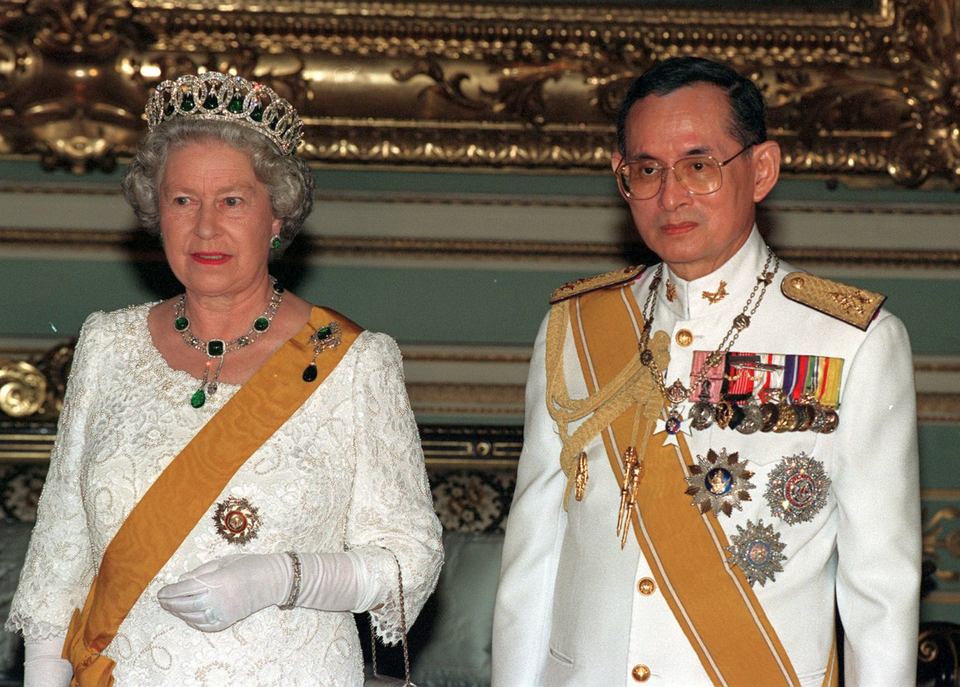
The death of Britain’s Queen Elizabeth has prompted relationship evaluations with the 100-plus countries she visited in a reign lasting seven decades. As regards Thailand, the obvious point is that King Bhumbol Adulyadej, Rama IX, ruled for only a year or two less than his British counterpart prior to his own death in 2016. Only one former monarch, Louis XIV of France, is known to have sat on a throne longer unless the doubtful claims of relatives of Ghengis Khan are recorded as true history.
The British and Thai monarch first met in 1960 when the youthful king came to the UK as part of his westernization tour. Elizabeth first visited Thailand in 1972 and again, more grandiosely, in 1996 which coincided with Bhumbol’s golden jubilee celebrations. In later years, there was the shock decision of the London authorities to sell off the British embassy in Bangkok to the highest-bidder. The famous statue of Queen Victoria now sits darkly outside a department store in spite of the best endeavors of the British Club to relocate her to its more prestigious base.
The future of the two countries in third quarter 2022 looks very different. Thailand sits geographically at the apex of ASEAN, the free trade zone of nine regional partners. She has the second-largest GDP after Indonesia and is successfully encouraging significant foreign investment, for example in the Eastern Economic Corridor, in hi-tech industries. Her political development has been marred by successive coups, but it is not clear they have caused economic contraction. Britain, by contrast, has abandoned the European Union, is suffering chronic hyper-inflation and has failed to find a new role following the decades-long collapse of the British empire. What remains are 14 windswept overseas territories – the largest being the Falklands with a population of less than 3,000 – and a Commonwealth of 56 independent nations which have virtually nothing in common with each other or the mother country.
Elizabeth performed her mostly honorary duties to perfection during a long reign. She rarely voiced publicly a political preference although her suggestion that the people of Scotland should think very carefully before voting in the independence referendum was a notable exception. Her son and successor, Charles III, will receive the same pomp and ceremony, but the realities are now different. He is already on record as being partisan, even tactless, with a liking for personal correspondence with ministers. And he is already well past retirement age in most occupations.
Meanwhile, the antics of some members of the royal family and their partners, spread by social media and without the protection of Thai-style lese majeste laws, are emboldening republican sentiment. The withdrawal of both Scotland and Northern Ireland from the United Kingdom is a distinct possibility in the medium term: most polls in both countries show a neck and neck polarization. The steadying and unifying presence of Elizabeth II is going to be very sorely missed.
 |
 |
 |





